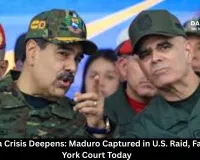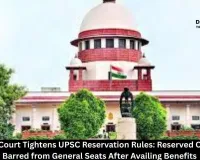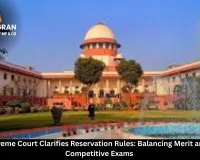Advocate Anik AM iktear uddin:- Understanding the Right to Vote: Constitutional Validity and Legal Protections in India
By Advocate A.M. Iktear Uddin (Advocate Anik)
Advocate A. M. Iktear Uddin (Advocate Anik), a renowned lawyer and Special Public Prosecutor, partners at Prime Legal with Advocate Ayantika Mondal, bringing 16+ years of high court experience. He emphasizes that voting is a constitutional right, essential to democracy yet prone to legal and protective challenges. We spoke with Advocate Anik, a constitutional law expert, to simplify these issues and outline safeguards against electoral malpractice.
Constitutional Basis of the Right to Vote
Article 326 of the Indian Constitution grants the right to vote in elections for the Lok Sabha and State Legislative Assemblies. According to this provision, every Indian citizen aged 18 years or above is entitled to vote.
However, in Jyoti Basu vs. Debi Ghosal (1982), the Supreme Court clarified that the right to vote is not a Fundamental Right but a Statutory Right. This right is primarily governed by the Representation of the People Acts (RoPA) of 1950 and 1951, which provide Parliament limited authority to regulate electoral processes.
Why the Right to Vote is Statutory, Not Fundamental
The framers of the Constitution intentionally kept the right to vote within a statutory framework. This decision ensured flexibility — allowing Parliament to amend electoral processes, eligibility, disqualifications, and procedures according to changing social and technological needs.
By keeping it statutory, the legislature retained the ability to adapt and reform electoral laws without requiring constitutional amendments.
Constitutional Protection Despite Being Statutory
In People’s Union for Civil Liberties (PUCL) vs. Union of India (2003), the Supreme Court recognized that the act of voting is a form of political expression. This means that voting is indirectly protected under Article 19(1)(a) — the right to freedom of expression.
Therefore, if the electoral process becomes arbitrary, discriminatory, or manipulative, citizens can challenge it under Article 14 (Right to Equality) and Article 19 (Freedom of Expression) of the Constitution.
Legal Safeguards in the Voting Process
1. Powers of the Election Commission:
Under Sections 58 and 58A of the Representation of the People Act (1951), the Election Commission of India (ECI) has the authority to cancel or postpone polling in cases of booth capturing or electoral malpractice.
2. Punishment for Voter Impersonation:
Section 172 of the Bharatiya Nyaya Sanhita, 2023 (formerly IPC) makes it a criminal offence to cast a vote in someone else’s name.
3. Transparency in Electoral Rolls:
The Registration of Electors Rules, 1960 ensure that electoral rolls are open to public scrutiny and can be corrected or updated periodically.
4. Model Code of Conduct:
Although not a statutory law, the Model Code of Conduct (MCC) serves as a moral and administrative guide to maintain ethical standards during elections.
Safeguards Against Voter Impersonation
Voter impersonation or “vote theft” remains one of the biggest challenges to Indian democracy.
To counter this, the Election Commission has introduced multiple measures, such as:
-
EPIC (Electors Photo Identity Card) system
-
Photo-based voter lists
-
Biometric verification pilot projects
Citizens can also report impersonation through the ECI helpline 1950, via the official mobile app, or directly to the local Returning Officer.
Legal Restrictions on the Right to Vote
Section 62(5) of the Representation of the People Act (1951) prohibits voting by prisoners in custody.
In Anukul Chandra Pradhan vs. Union of India (1997), the Delhi High Court upheld this restriction as valid and reasonable.
However, legal experts believe that the issue could be reconsidered in the future based on equality and dignity principles under constitutional jurisprudence.
Judiciary’s Role in Strengthening the Electoral System
The Indian judiciary has played a proactive role in ensuring transparency and fairness in elections:
-
Association for Democratic Reforms (2002):
The Supreme Court mandated disclosure of candidates’ criminal records, financial assets, and educational qualifications. -
PUCL (2013):
The Court introduced the NOTA (None of the Above) option, allowing voters to reject all candidates — a step that expanded the scope of voter choice and political expression.
Reform Measures — Advocate Anik’s Perspective
1. Technological Transparency:
Blockchain-based E-voting systems can reduce electoral fraud in the future by providing secure, traceable, and tamper-proof digital records.
2. Remote Voting System:
Secure remote voting should be developed for migrant workers, defense personnel, and overseas Indians, ensuring wider participation in the democratic process.
3. Civic Education and Awareness:
Continuous voter awareness campaigns, community-level training, and educational programs are essential so that every citizen understands and responsibly exercises their voting right.
Conclusion
The right to vote in India is a statutorily recognized, constitutionally supported right — the backbone of Indian democracy.
To protect and strengthen it, India must continue working on legal reforms, technological transparency, and citizen awareness.
As Advocate Anik aptly states:
“The strength of democracy lies not merely in having rights, but in exercising them with responsibility.”
Author: Advocate A.M. Iktear Uddin (Advocate Anik)
Contributor: Prime Legal | Special Public Prosecutor











